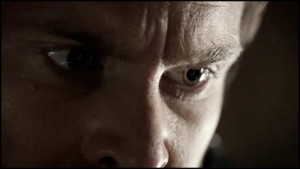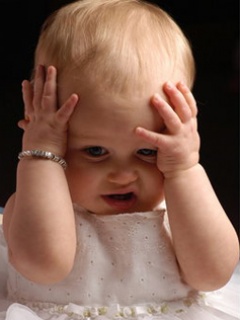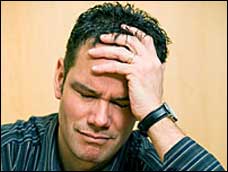Podcast: Play in new window | Download
 What do you expect? Perfection? Winning every time? Never making a mistake?
What do you expect? Perfection? Winning every time? Never making a mistake?
I caught myself this morning saying something really intelligent. (probably because of the movie I watched last night)
I always learn marketing. So I just participated in a 3-day event… I have three things I want to implement. Three things that I just learned at this event. The event that ended last night.
Of course, most of the things I learned will replace my ineffective marketing actions from before the event.
And there is a moment of reckoning:
I have been doing it all wrong. And I have spent a lot of money advertising the wrong way. I have been doing a lot of work that is now all wasted.
Sinking feeling in the stomach.
And then came the intelligent saying: ‘What did you expect? You don’t know what you are doing.’ And then this created an even stronger sinking feeling in the stomach.
 This is what this article is about: that sinking feeling and you
This is what this article is about: that sinking feeling and you
I’ve been observing, in my own life and in the lives of my students, I am noticing that the BIGGEST barrier to growth, the biggest barrier to learning, the biggest barrier to action is the gap between your expectation of yourself to be perfect. Your expectation to know everything without learning. Your expecation to do everything without mistakes, to never fail at anything.
It isn’t part of genetics: it is definitely a societal, cultural expectation that came from your parents and guardians.
Expectation is the mother of disappointment
When I was eight, my mother was in the hospital. I cooked a three-course meal: I needed a foot stool to be able to do it, but I did it.
I only remember the desert, because I screwed that up. It was similar to bread pudding, except instead of bread it had noodles in it, crushed poppy seeds, crushed walnuts, apricot jam… a yummy dish… except…
You cook the noodles in water. The water needs to be salty or the whole dish is ruined… I forgot to put the salt. You can’t salt a sweet dish on your plate.
This was 65 years ago, I still remember it with a sinking feeling in my stomach.
Human culture is such that you only pay attention to your failures, your mistakes, your misses, your errors, your screw ups, and never remember your successes. Why? Because you expected to succeed… So it is a non-issue.
Context is decisive, so let’s look what’s the context, and let’s see if we can change it, by design.
 The context (I am speculating!) must be something like ‘unless I am perfect my mommy will not like me’. Because, believe it or not, it is all about being loved… and underneath it, it all boils down to survival.
The context (I am speculating!) must be something like ‘unless I am perfect my mommy will not like me’. Because, believe it or not, it is all about being loved… and underneath it, it all boils down to survival.
 As societal creatures, our survival depends 90% on what others think of us, whether they like us or not… at least that’s how it feels, doesn’t it? In some countries it is even 99%, like Canada.
As societal creatures, our survival depends 90% on what others think of us, whether they like us or not… at least that’s how it feels, doesn’t it? In some countries it is even 99%, like Canada.
This societal expectation to be perfect, therefore lovable, is a poison that we, knowingly, administer to ourselves.
 Perfection doesn’t buy you liking, you, yourself, hate people who are perfect, you want to tear them down, it’s irritating! Whether it’s perfect looks, whether it’s perfect education, anything.
Perfection doesn’t buy you liking, you, yourself, hate people who are perfect, you want to tear them down, it’s irritating! Whether it’s perfect looks, whether it’s perfect education, anything.
Perfection is not attractive, and yet, stupid as the mind is, the mind keeps on telling you that if you could just be perfect, you would be liked, invited to parties, get married, whatever.
 So you shrink, and you die a little bit every day.
So you shrink, and you die a little bit every day.
Trying to be perfect is a stumbling block: you won’t want to do anything that you don’t already know how to do.
 To be alive is to grow. Life wants more life…
To be alive is to grow. Life wants more life…
Two things to the rescue:
You could say: I am expecting myself to be perfect, but that is not natural.
Instead I want to be growing. The more mistakes I make the more I grow… Blunders galore wins the gold!
I saw a movie last night. I loved it. Bob the Butler… (watch it free here) Bob, our hero was getting fired from his hundredth job, a pizza parlor.
Without losing faith, without losing a beat, he picks another profession and enrolls in a 5-day training to become a butler.
The training starts out with 25 participants, by day three, only Bob remains. Bob is tenacious.
He ‘graduates’ and gets a job as a butler.
And suddenly everything that he had failed at before becomes suddenly useful.
He wins the heart of the family he butlers for, and there is a happy ending.
Lovely movie, very educational, and very fitting for your conundrum: failing.
Failing at something. If you attempted to learn to do it well, it becomes a valuable asset.
 I have trained, in addition to be an architect and a structural engineer, to become an MBA.
I have trained, in addition to be an architect and a structural engineer, to become an MBA.
to become an interpreter, someone who already says what the other person says, but in another language, without waiting for them to stop talking.
seamstress, painter, carpenter, electrician, typist, shorthand-er, speed reader, shipper, typesetter, printer, publisher, writer, desktop publisher, perl programmer, webmaster, script installer, photoshop and illustrator designer, etc. etc. etc. in addition to having competed in swimming, table tennis, and the uneven bars.
 When I got my first computer back in 1989, I didn’t know what I was doing, but took on to moving an entire magazine’s design operation onto the Macintosh… and of course I screwed it up.
When I got my first computer back in 1989, I didn’t know what I was doing, but took on to moving an entire magazine’s design operation onto the Macintosh… and of course I screwed it up.
But the experience of failure was the beginning of a successful publishing career for the next 11 years.
Why? Because I did all I knew to do for success… so I learned something.
Most people I watch never do all they know to do for success of anything. they TRY. Trying is a code word where you don’t do. And if you don’t do, you don’t learn. And if you don’t learn then you have no assets. You have nothing.
 Being unstoppable by fear of failure is the most important skill you can learn. It’s a skill, not a quality.
Being unstoppable by fear of failure is the most important skill you can learn. It’s a skill, not a quality.
Unstoppable people become unstoppable because they use the skill: reframing everything.
The difference between them and you is that they do the reframing, and you don’t…
Until now you didn’t know how to do it, now you at least have an idea.
What is a frame?
You have a default frame that you look through. It has two words on it: something and the opposite. Like success/failure. Good/Bad. Wrong/right.
The job is to change the frame to a frame that has more words in it… outside of the default binary yes/no word.
Bob the Butler’s reframe was: useful/not useful… Or skill/no skill. Or ‘What else am I going to do with my life?‘
It becomes easier to widen the frame once you have used the Unconditional Love Activator for a length of time. I am including it in the Effortless Abundance Activator, so if you get that, you’ll have 168 activators in one short audio, including the 40 energies of the Unconditional Love Activator. Warning: if your vibration is under 170, you need the bottled remedy first. Make your own with the audio.
And then, armed with the energies, enter a competition of who fails most.
Failure is the key to growth…
I will have a prize for the winner. A big one. At least a thousand bucks…
 Start failing. Most failures (need to be documented and true!) before Labor Day (September 5) will get the prize
Start failing. Most failures (need to be documented and true!) before Labor Day (September 5) will get the prize
You need to be a subscriber. Sign up below…
PS: oftentimes steps that make NO SENSE are the solution to a problem.
As usual, what makes sense won’t work. And what doesn’t make sense does.
Our level of consciousness doesn’t allow us to increase the complexity, the number of variables because to our level of consciousness it doesn’t make sense. Doing the frame thing, the reframing, failures to increase our chances for a good life does not make sense to the current population of the planet.
If you use this article as your guidance without need it to make sense, you’ll be head and shoulder above others.
If you recall my consciousness article, you’ll actually see that that is exactly what I teach there… increasing the variables so thinking can happen… Real thinking results in consciousness.
If it is true anywhere, it must be true everywhere… If it isn’t then it wasn’t true to begin with
